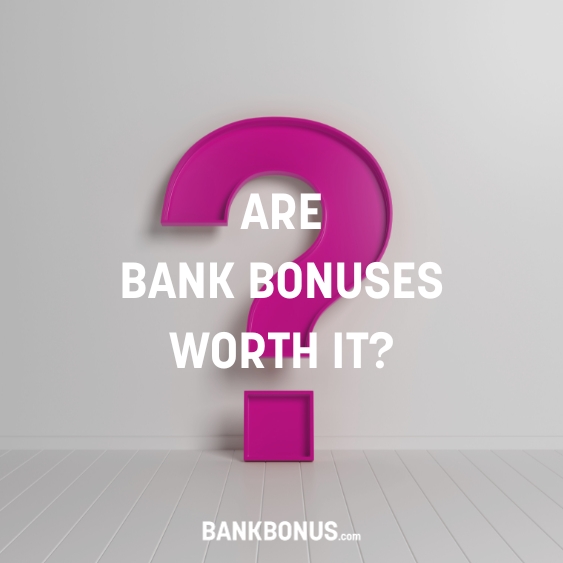Some banks allow you to fund a new bank account with a credit card.
Funding a checking account or savings account with a credit card can provide some added financial benefits, like helping you meet a minimum deposit requirement or be eligible for a bank bonus, but it isn’t without its risks.
Read on to learn how to fund a bank account with a credit card, weigh the pros and cons, and see which banks allow credit card funding.
How to Fund a Bank Account with a Credit Card
Most people transfer money to new bank accounts with either a cash deposit, check deposit, or electronic transfer (ACH), but some accounts can be funded with a credit card.
You have to find the right type of credit card for making bank deposits without cash advance fees. When you find the right card to fund your new account, your credit card issuer regards the deposit as a purchase like any other.
This means that the purchase counts toward your credit card balance. Depending on the card, you may also use it to access bonus offers and earn reward points. You can also use a credit card to meet the minimum opening deposit requirement for your new bank account.
The other key to successfully funding a bank account with a credit card is to choose the right bank.
Some banks, like Bank of America, won’t let you fund accounts with a credit card. Other credit card issuers, like Citibank, are notorious for flagging credit card funding as a cash advance rather than a purchase, which can trigger fees.
Credit Card Funding Example
To give you a better idea of credit card funding, here’s a scenario we have seen in our experience with maximizing bank bonuses:
Maya applies for a new credit card that offers $500 worth of rewards points if she spends at least $2,000 in the first three months after opening.
The card offers 1% cash back on all purchases and comes with a 0% APR on balance transfers for the first 18 months.
Simultaneously, Maya finds a checking account that offers a $300 bank bonus if she makes an initial deposit of $1,500 or more and maintains that balance each statement period for 90 days.
Maya is in a pretty good spot to use credit card funding to earn rewards, given that both her credit card issuer and the bank allowed it.
Matt Bundrick
Consider a Credit Card Bonus Offer Today
Key Considerations For Credit Card Funding
The only real reason to fund a bank account with a credit card is to cash in on rewards and bonuses that would be difficult to get otherwise. But the last thing you want to do is put yourself in a compromising financial position while trying to chase down sign-up bonuses.
If there’s even a chance that funding an account with your card can cause financial stress, don’t do it. A $200 bonus isn’t worth the risk.
Here are some other major considerations:
- Cash advance fees: Most credit cards have fees associated with cash advances. Whether or not your bank account deposit is considered a cash advance depends solely on your credit card provider’s policies. If your deposit is coded as a cash advance rather than a purchase, you’ll probably have to pay hefty fees.
- Interest on credit card: If you can’t pay back the money you spent on the deposit, you’ll accumulate credit card debt with interest. However, some credit cards offer a low or non-existent interest rate as an intro bonus, giving you extra time to pay it off. Don’t delay, though. You should always pay off your credit card balances in full each month.
- Late payment fees: If you aren’t able to make payments on your new credit card, you’ll also get hit with late payment fees. Falling behind on your credit card payments is a slippery slope that you should avoid at all costs.
- Minimum balance requirements: Many bank accounts require you to keep a certain amount of money in the account every month to avoid fees. As a result, your cash gets tied up in the account if you want to avoid fees.
- Monthly fees: A lot of bigger banks have monthly maintenance fees on checking and savings accounts. Some banks waive checking account fees if you meet a minimum balance requirement, while others may require a direct deposit. Credit card funding does not qualify as a direct deposit.
Should You Fund Your Account with a Credit Card?
The risk associated with credit card funding is similar to the risk of taking out a personal loan. Interest on unpaid balances, late payment fees, and the potential to rack up debt are all pitfalls to watch for.
If you fund an account for more than you can afford to pay back, expect to be hit with interest fees on your credit card account that can wash out your return. Similarly, if you end up having to pay a cash advance fee, the sign-up bonus may not be as appealing.
Approach credit card funding with a clear plan so you can avoid interest-bearing debt. Also, be sure to fully understand the requirements of both your bank and credit card.
Credit Card Purchase vs. Cash Advance
Each bank has its own policy for deciding what credit card transactions to code as purchases vs. cash advances.
If your bank counts the transfer as a purchase, you don’t have to worry about fees, but a cash advance will come with charges, usually between 3-5% of the transaction.
In addition to the fees you’d incur, you could also lose out on rewards like bonus miles that only apply to purchases. Not only wouldn’t you earn extra money, but you might lose money just by funding your account.
To ensure that your deposit isn’t coded as a cash advance, call your credit card company ahead of time and set your cash advance limit on the card to $0. That way, even if the deposit is flagged as a cash advance rather than a purchase, the transaction won’t go through.
Bank Accounts You Can Fund with a Credit Card
Not all banks and credit cards allow credit card funding. Even within the same bank, some account options allow it while others don’t.
Banks may also restrict funding from certain credit cards, and the way that the deposit is coded is entirely at the discretion of the bank and credit card issuer.
Here’s a rundown of some popular financial institutions that may allow you to fund your account with a credit card:
1. Chase 
Chase Bank may allow credit card funding for amounts up to $500. However, many credit cards could be coded as a cash advance with Chase accounts, meaning that you could be looking at cash advance fees from your credit card issuer.
Learn More:
2. Wells Fargo 
Wells Fargo allows for credit card funding, but it will likely be treated as a cash advance. The amount you can transfer from your card to your bank account may vary from one financial product to the next.
Learn More:
3. TD Bank 
TD Bank allows credit card funding for up to $1,000 on some accounts. Bank of America Cash Rewards, Citi AA/Hilton Honors Visa, and US Bank Flex Perks are some of the top cards it has accepted in the past.
Credit card funds are typically coded as cash advances, though, so be aware of the fees.
Learn More:
4. U.S. Bank 
U.S. Bank may allow funding up to $500 with a credit card and has an extensive list of popular qualifying cards.
For example, you can fund the account with the Capital One Quicksilver, American Express Delta Gold Business credit card, Capital One Venture, and Chase Amazon card.
Some U.S. Bank cards may count as a purchase rather than a cash advance.
Learn More:
5. GTE Financial 
GTE Financial Credit Union allows for funding up to $500 with a credit card and has a decent list of popular qualifying cards.
To fund an account with a credit card, you’ll need to deposit a minimum of $5. GTE routinely offers bonuses for opening new accounts and referring friends to open accounts.
Learn More:
Summary
The list above isn’t exhaustive, and you may find that you have better luck with smaller regional banks or credit unions.
You should also take note of the disclaimer that none of these policies are set in stone.
Banks that previously allowed for credit card funding may have since stopped, or, like PNC Bank, some have recorded credit card deposits as cash advances.
Always read the fine print.
Frequently Asked Questions
Is credit card funding legal?
Yes, credit card funding is a legal practice that many banks and credit cards accept. Some banks have restrictions on which credit cards they’ll accept, and other credit card companies may not allow it at all. Along with credit cards, some banks also allow funding with prepaid gift cards.
Does credit card funding affect my credit score?
The act of credit card funding or opening a bank account doesn’t affect your credit score. But if you open a credit card to fund your new bank account, this could slightly drop your credit score because it requires a hard credit inquiry.
It can also affect your credit utilization rate, which is the amount of available credit you have. If you don’t pay back the money you borrowed to fund your new account, your credit utilization rate goes up, which can negatively impact your score over time. To avoid this fate, make sure you have a plan to pay off any credit balances you rack up.
How do I know if a bank accepts credit card funding?
Banks are usually transparent about whether or not credit card funding is an option. Do your research, and don’t hesitate to call and ask the bank before signing up.
When Does Credit Card Funding Make Sense?
When you sign up for a new credit card or open a bank account online, you may be able to cash in on a sign-up bonus.
Many bank accounts offer a cash bonus for hitting an initial funding benchmark. Sign-up bonuses like these are great, but spending requirements are often in the thousands, which can make credit card funding an appealing idea.
With that said, I only recommend credit card funding if you make payments responsibly and have a solid cash flow and emergency fund saved up.
If you’re concerned you might be biting off more than you can chew, you’re probably better off funding your checking or high-yield savings account with a debit card or transfer from another account.





Read 1 comment
Read Comments